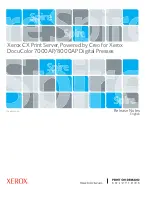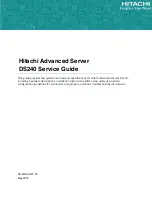
298
IBM z13s Technical Guide
z/OS V2R1 has support for SIMD through an SPE. The z/VM support for SIMD support will be
delivered for z13/z13s with PTF for APAR WM65733 for guest exploitation.
OS support includes the following items:
Enablement of vector registers.
Use of vector registers using XL C/C++ ARCH(11) and TUNE(11).
A math library with an optimized and tuned math function (Mathematical Acceleration
Subsystem (MASS)) that can be used in place of some of the C standard math functions.
It has a SIMD vectorized and non-vectorized version.
A specialized math library, which is known as Automatically Tuned Linear Algebra
Software (ATLAS), which is optimized for the hardware.
IBM Language Environment® for C runtime function enablement for ATLAS.
DBX to support the disassembly of the new vector instructions, and to display and set
vector registers.
XML SS exploitation to use new vector processing instructions to improve performance.
MASS and ATLAS can reduce the time and effort for middleware and application developers.
IBM provides compiler built-in functions for SMID that software applications can use as
needed, such as for using string instructions.
The use of new hardware instructions through XL C/C++ ARCH(11) and TUNE(11) or SIMD
usage by MASS and ATLAS libraries requires the z13s support for z/OS V2R1 XL C/C++ web
deliverable.
The followings compilers have built-in functions for SMID:
IBM Java
XL C/C++
Enterprise COBOL
Enterprise PL/I
Code must be developed to take advantage of the SIMD functions, and applications with
SIMD instructions abend if they run on a lower hardware level system. Some mathematical
function replacement can be done without code changes by including the scalar MASS library
before the standard math library.
The MASS and standard math library have different accuracies. Therefore, you need to
assess the accuracy of the functions in the context of the user application when you decide
whether to use the MASS and ATLAS libraries.
The SIMD functions can be disabled in z/OS partitions at IPL time by using the
MACHMIG
parameter in the LOADxx member. To disable SIMD code, use the MACHMIG VEF
hardware-based vector facility. If you do not specify a
MACHMIG
statement, which is the default,
the system will be unlimited in its use of the Vector Facility for z/Architecture (SIMD).
7.11 The MIDAW facility
The Modified Indirect Data Address Word (MIDAW) facility is a system architecture and
software exploitation that is designed to improve FICON performance. This facility was first
made available on System z9 servers, and is used by the Media Manager in z/OS.
Summary of Contents for z13s
Page 2: ......
Page 3: ...International Technical Support Organization IBM z13s Technical Guide June 2016 SG24 8294 00 ...
Page 24: ...THIS PAGE INTENTIONALLY LEFT BLANK ...
Page 164: ...136 IBM z13s Technical Guide ...
Page 226: ...198 IBM z13s Technical Guide ...
Page 256: ...228 IBM z13s Technical Guide ...
Page 414: ...386 IBM z13s Technical Guide ...
Page 464: ...436 IBM z13s Technical Guide ...
Page 476: ...448 IBM z13s Technical Guide ...
Page 498: ...470 IBM z13s Technical Guide ...
Page 502: ...474 IBM z13s Technical Guide ...
Page 568: ...540 IBM z13s Technical Guide ...
Page 578: ...550 IBM z13s Technical Guide ...
Page 584: ...556 IBM z13s Technical Guide ...
Page 585: ...ISBN 0738441678 SG24 8294 00 1 0 spine 0 875 1 498 460 788 pages IBM z13s Technical Guide ...
Page 586: ......
Page 587: ......
Page 588: ...ibm com redbooks Printed in U S A Back cover ISBN 0738441678 SG24 8294 00 ...
















































